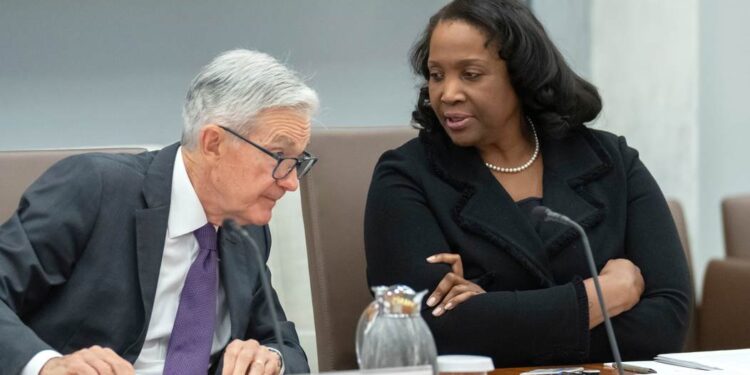The Department of Justice has now opened a criminal investigation into Federal Reserve Governor Lisa Cook, and the details are as troubling as they are revealing about the culture of unaccountability in Washington’s elites.
The controversy stems from Cook’s purchase of two homes—one in Ann Arbor, Michigan, and another in Atlanta, Georgia—just two weeks apart. On sworn mortgage documents, she declared both as her “primary residence,” a move that raises red flags of perjury and fraud. The alarm was first raised by Bill Pulte, director of the Federal Housing Finance Agency, who has since filed three separate criminal referrals against her.
Instead of bowing out quietly, Cook has dug in, even contesting her dismissal by President Trump in court. What’s notable, however, is the silence where it matters most: she has never denied the core allegations. Justice Department lawyers hammered this point in a recent filing, stating, “An opportunity to tell one’s side of the story only matters if one has a side of the story to tell, and Dr. Cook has given no indication that she does.” That absence of a defense speaks volumes.
The investigation has now escalated to the stage of subpoenas, suggesting prosecutors are determined to make an example out of this case. And with a DOJ looking for a scalp, Cook’s legal maneuvering may only delay the inevitable.
This is more than just a personal scandal—it’s a direct threat to the integrity of America’s economic policy. The Federal Reserve Board of Governors, which sets interest rates and influences the financial stability of the nation, cannot afford the stain of illegitimacy. Yet the next board meeting on September 16 will proceed with Cook still technically seated. If she casts a vote on interest rate decisions while her legal status remains in question, the legality of those decisions could collapse under future challenges.
That creates a problem not only for Cook but also for Fed Chairman Jerome Powell. Already on shaky ground with President Trump, Powell risks his own position if he allows Cook to participate in board votes. Should he fail to act, his refusal to enforce Trump’s firing order could give the president grounds to remove him “for cause.”
The bigger picture? If Cook’s removal holds—and all signs point that way—President Trump would secure a majority on the seven-member board. That shift would give him the leverage to steer U.S. monetary policy toward common-sense, pro-growth measures instead of leaving it hostage to bureaucrats who play by their own rules.
This unfolding scandal underscores a simple truth: accountability matters. When public officials think they can skirt the law with no consequences, trust in the system collapses. Shining sunlight on corruption—whether in Congress, the courts, or the Fed—isn’t just good governance, it’s essential to preserving a republic built on the rule of law, not the privileges of the powerful.





















They are the entitled elite they owe no accountability to anyone, at least that’s how they see it. We have no business snooping into what they have been doing.